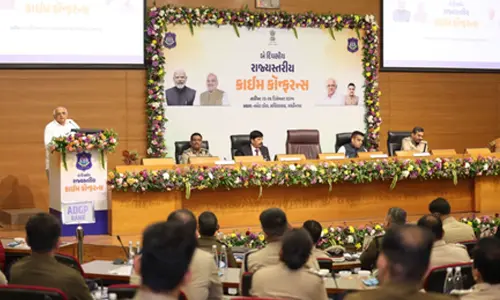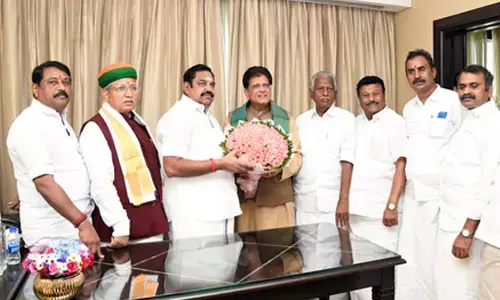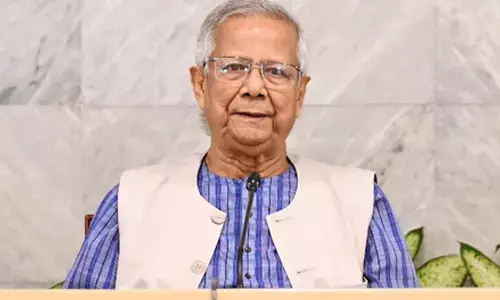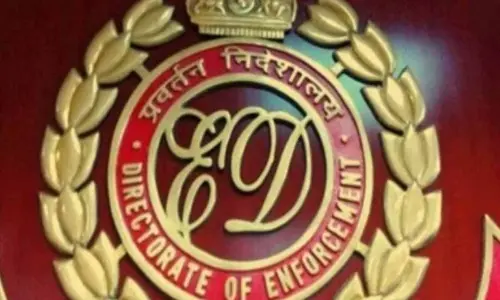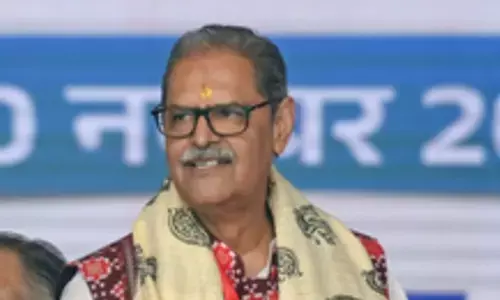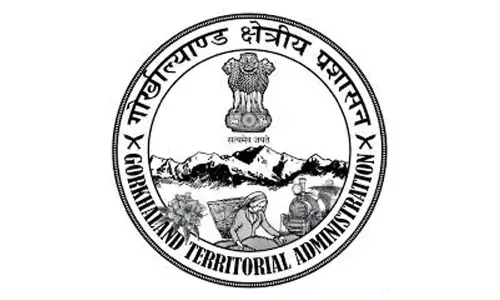Let us imbibe the spirit of Constitution to address our socio-economic anomalies

There has been gross discrimination as regards gender, caste and religion all along
It has been almost eight decades now since we attained Independence in 1947. The Constituent Assembly of India on 26th November 1949 adopted the new Constitution, which became effective on 26th January 1950. It replaced the Government of India Act, 1935 as the country’s fundamental governing document; the Dominion of India became the Republic of India.
Although, our Constitution guarantees complete freedom from socio-economic and political brutalities, we have not been very honest and sincere in adhering to its spirit when it comes to formulating socio-economic policies. As a consequence, we continue to struggle with a multitude of problems – social, educational, political, economic and even spiritual – posing a serious threat to the idea of equality, justice, fraternity, liberty and inclusivity, which is also the flavour of our Constitution so aptly encapsulated in its Preamble. The Preamble of our Constitution, as on May 31, 2024, reads: “We, the people of India, having solemnly resolved to constitute India into a sovereign, socialist, secular, democratic republic and to secure to all its citizens: Justice, social, economic and political; Liberty of thought, expression, belief, faith and worship; Equality of status and of opportunity; and to promote among them all Fraternity assuring the dignity of the individual and the (unity and integrity of the Nation); in our Constituent Assembly this twenty sixth day of November, 1949 do hereby adopt, enact and give to ourselves this Constitution.”
As a journalist with nearly 30 years of experience in the profession, I don’t understand why we shouldn’t use the Constitution as a friend, guide, critic and philosopher to achieve the cherished socio-economic and political goals, which motivated our forefathers to free our motherland from the shackles of the British.
Thanks to the Constitution, we have achieved a lot on multiple fronts so far but we could have done much better had we been sincere in our endeavours to respect the pious contour of the Constitution, which is an article of faith of every citizen of the country. That is what continues to worry us.
Now let us get into some specifics. The Article 15 (1) of the Constitution reads: “The State shall not discriminate against any citizen on grounds only of religion, race, caste, sex, place of birth or any of them. (2) No citizen shall, on grounds only of religion, race, caste, sex, place of birth or any of them, be subject to any disability, liability, restriction or condition with regard to— (a) access to shops, public restaurants, hotels and places of public entertainment; or (b) the use of wells, tanks, bathing ghats, roads and places of public resort maintained wholly or partly out of State funds or dedicated to the use of the general public.”
Historically, India has experienced discrimination on the grounds of sex, caste, and religion, including untouchability and division of the upper and lower castes. Have such things stopped haunting us now? Perhaps not! Why? Because, we are not able to change our outlook or reorient ourselves in sync with the mandate of the Constitution! There can be various reasons for this but the most prominent among them, according to me, is the silence or reluctance of the haves among us in espousing the fact that fair is fair, unfair is unfair.
It certainly is a tall order in the Indian context but by not setting aside our penchant for caste, religion and income-based biases and prejudices, we are only damaging the nation’s fabric.
Article 16 (1) of the Constitution reads: “There shall be equality of opportunity for all citizens in matters relating to employment or appointment to any office under the State. (2) No citizen shall, on grounds only of religion, race, caste, sex, descent, place of birth, residence or any of them, be ineligible for, or discriminated against in respect of, any employment or office under the State.” Wonderful clauses no doubt but have we been responsible citizens in this regard? Perhaps not, due to which the majority of gainful opportunities in the private and public sector are still miles away from the reach of the communities who dominate the country’s population.
Article 21A says that “The State shall provide free and compulsory education to all children of the age of six to fourteen years in such manner as the State may, by law, determine.” Is the quality of this education on par with that being provided to the children of the powerful and rich among us? No, not at all! Then, why this discrimination against our own children from weaker sections of society!
According to Article 38 (2), “the State shall, in particular, strive to minimise the inequalities in income, and endeavour to eliminate inequalities in status, facilities and opportunities, not only amongst individuals but also amongst groups of people residing in different areas or engaged in different vocations.” Less we talk about inequalities is better today.
Article 43 reads: “The State shall endeavour to secure, by suitable legislation or economic organisation or in any other way, to all workers, agricultural, industrial or otherwise, work, a living wage, conditions of work ensuring a decent standard of life and full enjoyment of leisure and social and cultural opportunities and, in particular, the State shall endeavour to promote cottage industries on an individual or co-operative basis in rural areas.” Here I am also reminded of the famous statement of Cesario Estrada Chavez, an American labour leader and civil rights activist, “History will judge societies and governments—and their institutions—not by how big they are or how well they serve the rich and powerful, but by how effectively they respond to the needs of the poor and the helpless.”
Last but not the least, our Constitution also says: “It shall be the duty of every citizen of India — (a) to abide by the Constitution and respect its ideals and institutions, the National Flag and the National Anthem; (b) to cherish and follow the noble ideals which inspired our national struggle for freedom; (c) to uphold and protect the sovereignty, unity and integrity of India; (d) to defend the country and render national service when called upon to do so; (e) to promote harmony and the spirit of common brotherhood amongst all the people of India transcending religious, linguistic and regional or sectional diversities; to renounce practices derogatory to the dignity of women; (f) to value and preserve the rich heritage of our composite culture; ....”
Are we even aware of our fundamental duties as citizens?








